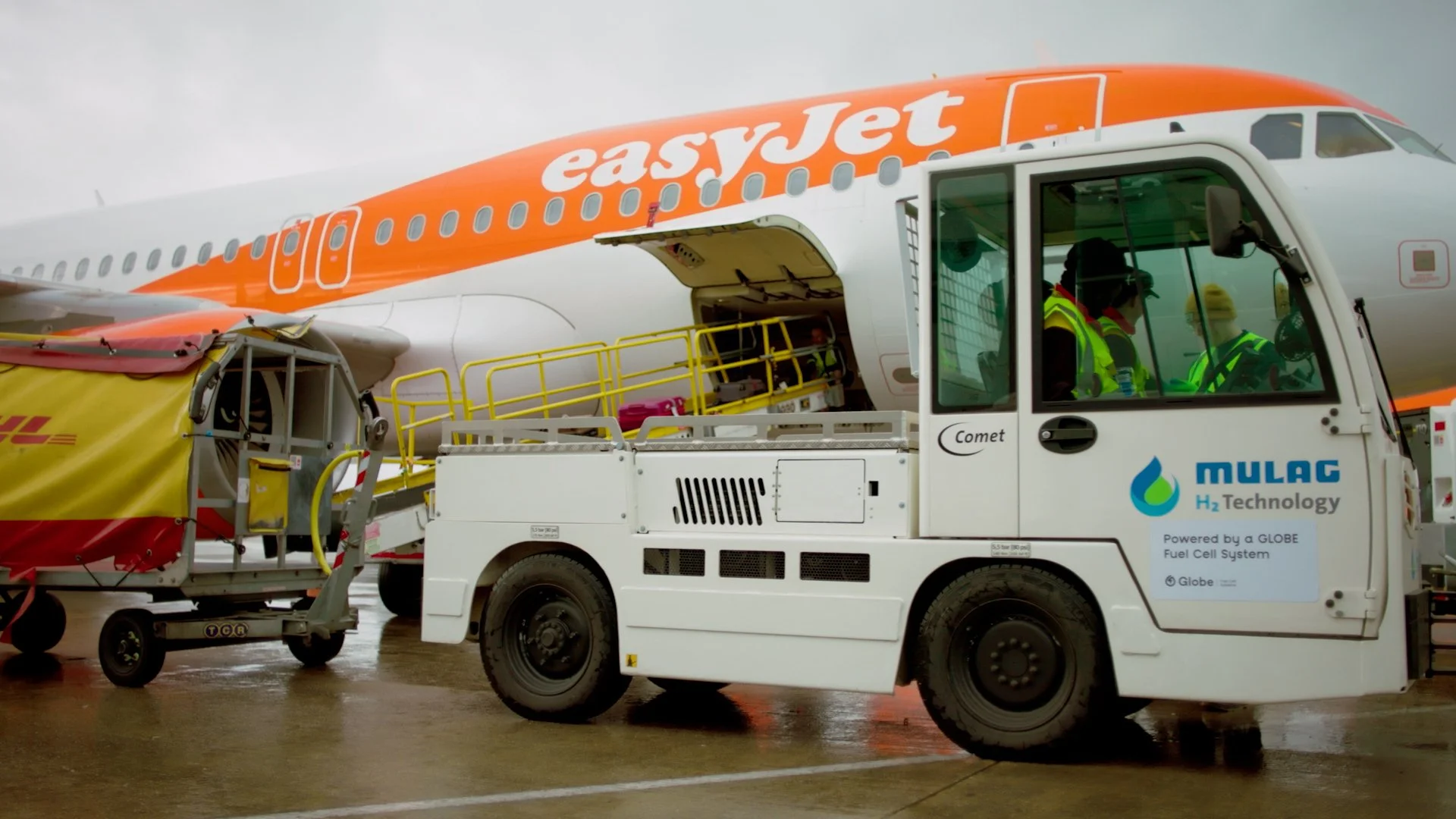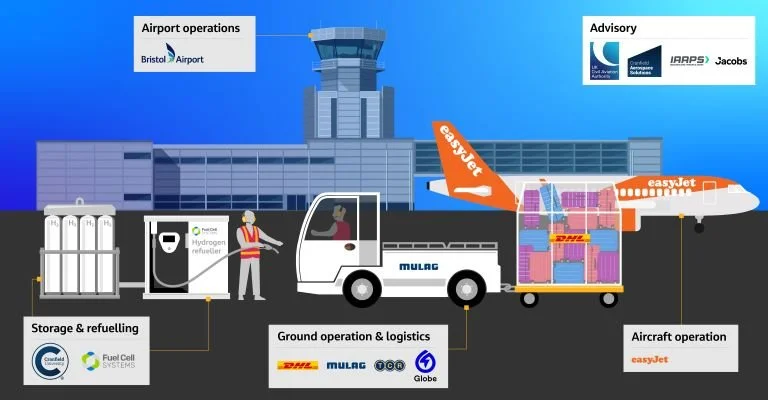Hydrogen trial signals progress in zero emission aviation
FCSL's HyQube 500 refuelling a baggage tractor. Credits: Cranfield University
In a significant initiative led by easyJet, Project Acorn has achieved an important milestone as the first airside hydrogen refuelling trial at a major UK airport. Conducted at Bristol Airport, this trial demonstrates the potential of hydrogen as a feasible alternative fuel for ground operations within the aviation industry.
Fuel Cell Systems’ HyQube 500 was used to refuel essential ground support equipment, specifically baggage tractors, servicing easyJet passenger aircrafts. This successful trial has been integrated into the airline’s daily operations and highlights the safety and reliability of hydrogen use in refuelling ground equipment within the dynamic environment of a live airport.
Project Acorn was in development for over a year and involved collaboration with leading organisations across aviation, engineering, logistics and academia. Partners such as Cranfield Aerospace Solutions, Cranfield University, Fuel Cell Systems Ltd., DHL Supply Chain and others contributed expertise to ensure the success of the trial.
Project Acorn Inforgraphic
The primary objective of Project Acorn is to establish industry best practices, provide guidance to stakeholders and develop regulatory frameworks for hydrogen’s integration into aviation operations. The data and insights gathered from the trial will contribute to the formulation of crucial safety standards and infrastructure changes necessary for hydrogen adoption in the aviation sector.
The outcomes of Project Acorn align with broader decarbonization goals, fostering economic growth and job creation. Hydrogen, as a zero-emission fuel source, holds the potential to create over 60 000 new jobs across the UK, contributing significantly to the nation’s energy requirements by 2050.
Investing in hydrogen not only accelerates the transition to sustainable aviation but also preserves the social and economic benefits of air travel. By embracing hydrogen technology, the aviation industry can continue to connect people, businesses and communities while mitigating its environmental impact.
Project Acorn represents a step forward in realising the vision of zero-emission aviation and underscores the potential of hydrogen in shaping the future of air transportation. Through collaborative efforts and innovation, the industry is ready to adopt sustainable solutions that drive progress towards a greener aviation sector.




